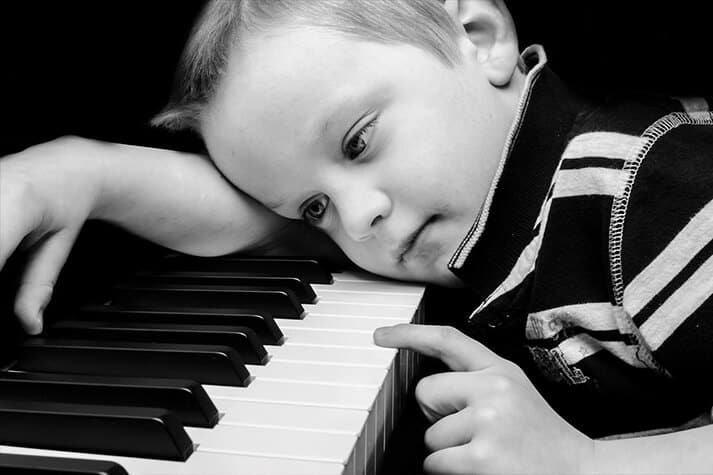Which Music Lessons Should You Pick For Your Kids?
Getting your kids involved in music lessons is one of the best decisions you can make. Your child would become exposed to other cultures, adopt new patterns of thought, and even gain self-confidence in his/her abilities.
Does playing a musical instrument make your child smarter? Of course. Then which instrument should my child play? Now that depends…
Choosing the Right Instrument For Your Child
Every instrument has it’s own strengths, weaknesses, and challenges to overcome. Which one is best is simply a matter of opinion. The best decision is to simply let your child decide verbally or by paying attention to the subtle clues your child leaves.
Drummers
Drummers tend to tap along to the beat even when one isn’t being played. They tap on their leg, the desk, their computer keyboard, the table, etc. The difference between a nervous tap and a drummer’s tap is that there is order to the drummer’s tap. It’s not just a random series of noises, well unless it’s somewhat of a music solo amongst the standard rhythm that is being repeated.
Singers
Singers are always singing. If your sibling is a singer, you probably wanted them to shut up. Singers love to sing about anything. The singing ability doesn’t even have to be all that good. Just think of some of the famous singers you listened to growing up. You probably think that half of them couldn’t sing. You are correct in your thinking. So contrary to popular belief, never let your children stop singing even if the world thinks they’re bad.
Guitar & Piano Players
Guitar & piano players appreciate all melodies. They enjoy the harmony between the musicians and the singers. They usually know every background melody being played that the average listener never gives a second listen to. You can often find a piano or guitar player humming a bass line in one instance whilst tapping to a drum pattern in that same instance. The piano player often mimes every instrument being played: guitar rifts, violin strums, triangle dings, more cowbell, etc.
Recognizing the Signs
Ask yourself this. When your child listens to music does he/she sing the main melody, sound good when singing, hum the background music, perk up during music solo breaks, tap along to the music, or a combination of all? Take a step outside of yourself and notice how you listen to music. Look at musically-gifted friends and gauge their subtle reactions when listening to music. Let this info be your guide to choosing the right music lessons for your child.
Personal Experience
Story time! I grew up with bongos and a piano in the house. Although I appreciated the rhythms and rich sounds that bongos generated, I always favored the piano. My parents even enrolled me in a few piano lessons early on. In my 4th grade band class I chose to play the French horn simply because hardly anyone chose it. My teacher didn’t think that was a good idea and selected the clarinet for me. In 5th grade the top clarinet students (me) were upgraded to the alto saxophone. I excelled further learning all kinds of cool scales, melodies, and jazz rifts. Throughout the next 10 years I played in front of churches, in adult nightclubs amongst poets & jazz musicians (at the age of 16), classical symphonic assemblies, etc. But everything I learned, I took back to the piano. I later put down the sax and concentrated on producing songs using the piano or my keyboard as the basis.
My point with all of this is learning an array of musical skills can be highly beneficial. However at the end of the day, you always focus on what you love the most. I chose for myself the piano at a very young age and that has always been my go-to instrument ever since.

